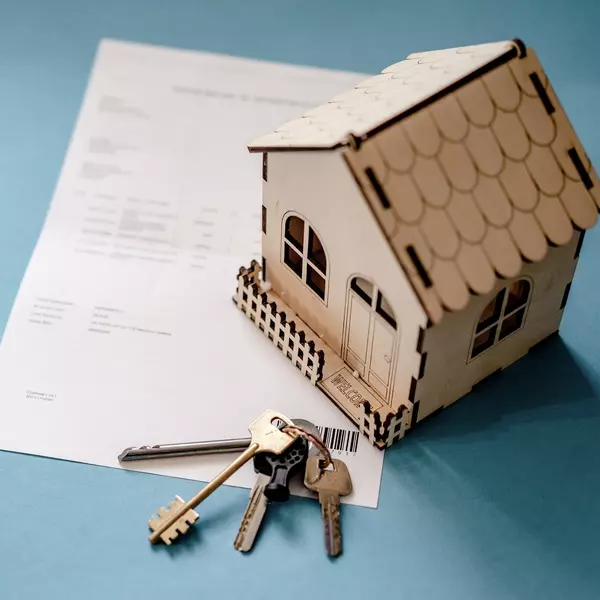Selling a Home with Tenants? Here's What You Need to Know
Selling a tenant-occupied property comes with unique challenges—and potential advantages. Whether you're an experienced investor or a homeowner renting out a property, navigating the sale of a rental home requires legal awareness, tenant cooperation, and strategic marketing.
As a licensed Realtor® and real estate investor, I’ve guided dozens of landlords through successful home sales with renters in place. In this post, I’ll share the six essential steps to selling a home with tenants—without legal missteps, strained relationships, or lost profits.
📘 Free Download: Get my Landlord’s Selling Guide, featuring a printable checklist, negotiation scripts, and tips to simplify your next sale.
🔍 Step 1: Understand Your Lease Terms & Local Tenant Laws
Before listing your rental property for sale, take a deep dive into the lease and relevant regulations.
✅ Key Questions to Ask:
-
Is the lease month-to-month or fixed-term?
Your ability to terminate or transfer the lease depends on this.
-
What are your local and state laws regarding tenant rights during a sale?
Some areas require 30–90 days' notice, relocation assistance, or may restrict eviction during a sale.
-
Can you legally ask tenants to vacate?
In many jurisdictions, tenants can legally remain until their lease ends—even after a sale.
🛑 Avoid Legal Pitfalls: Consult with a real estate attorney or local housing authority to confirm your obligations. Missteps here can delay your sale or lead to lawsuits.
🤔 Step 2: Decide Whether to Sell With or Without Tenants
There’s no one-size-fits-all answer—your decision depends on your timeline, financial situation, and buyer pool.
💼 Option 1: Sell with tenants in place
- Best for investor buyers
- Rental income and tenant stability are attractive selling points
- Showings may be limited
⏳ Option 2: Wait until the property is vacant
- Allows for staging, renovations, and unrestricted showings
- May delay your sale and increase holding costs
💰 Option 3: Offer a “Cash-for-Keys” Agreement
- Incentivize tenants to move out early
- Ensure it’s done legally with written documentation
🎯 Pro Tip: If you're aiming for a quick, cash sale, marketing to real estate investors could be your best strategy.
🤝 Step 3: Cooperate With Your Tenants
Tenant cooperation is essential to a smooth, successful sale.
How to Maintain a Good Relationship:
- Provide advance notice before showings or inspections
- Be transparent about your intentions to sell
- Offer incentives like reduced rent or relocation assistance
- Respect their privacy and time
🤝 Respect Builds Trust: Happy tenants are more likely to keep the property clean, allow showings, and cooperate with the process.
🎯 Step 4: Market the Property to the Right Buyers
When selling a tenant-occupied property, your marketing strategy must align with your buyer profile—typically investors.
What to Highlight:
- 📈 Monthly rental income
- 🔒 Tenant payment history and lease duration
- 📝 Lease terms and security deposit status
- 💼 Stability and potential for long-term cash flow
Sample Listing Phrases (SEO-friendly):
- “Cash-flowing investment property”
- “Turnkey rental with tenant in place”
- “Lease transfer opportunity”
📢 Marketing Tip: Use high-quality photos and clearly disclose the tenant situation upfront. Transparency builds trust with serious buyers.
🗓 Step 5: Plan for Showings—Legally and Respectfully
Showings in a renter-occupied home require thoughtful coordination.
Best Practices:
- Provide 24–48 hours’ notice as required by law
- Schedule block showings to minimize tenant disruption
- Offer a cleaning service if needed to keep the home presentable
- Maintain open communication and flexibility
🚪 Remember: Tenants aren’t obligated to help you sell. Treat them like partners, not obstacles.
📃 Step 6: Understand the Lease Transfer Process
Many sellers (and buyers!) misunderstand what happens to leases in a real estate transaction.
Here’s What to Know:
- If sold to an investor, the lease and tenants transfer with the property
- If sold to an owner-occupant, they may need to wait until the lease ends—or negotiate an early move-out
- The security deposit must be transferred to the new owner and documented in the final agreement
📑 Don’t leave this to chance—include lease details in the contract and communicate early to all parties involved.
📌 Final Thoughts: Selling a Home with Tenants Doesn’t Have to Be Stressful
With the right preparation, communication, and marketing, selling a rental home with tenants can be profitable and efficient. Whether you’re targeting real estate investors or prepping for a long-term strategy, being proactive and respectful of your tenants is key.
📥 Download My Free Landlord’s Selling Guide
This exclusive guide includes:
- A printable checklist
- “Cash-for-Keys” negotiation scripts
- Tips for tenant cooperation and legal compliance
Categories
Recent Posts












